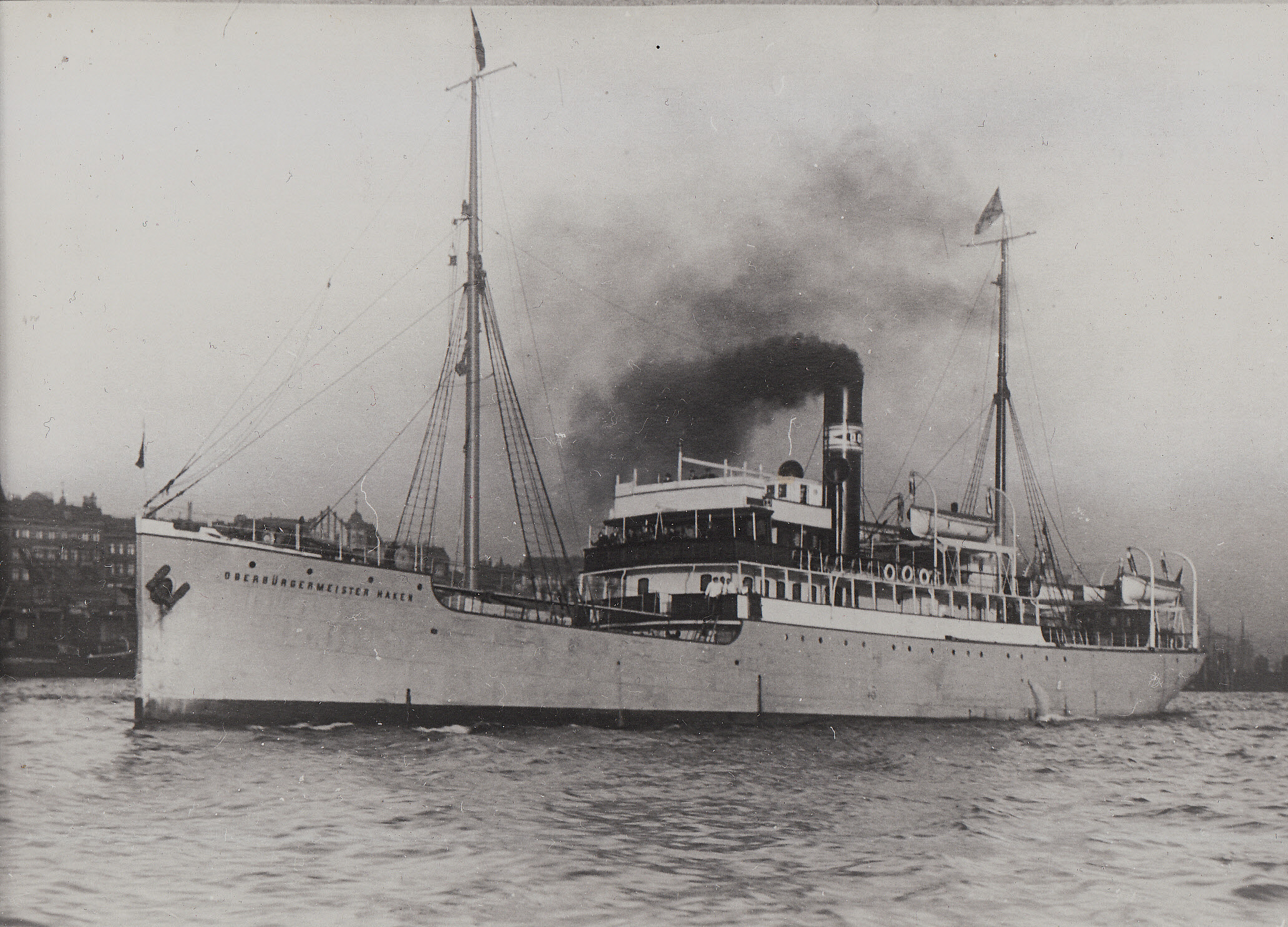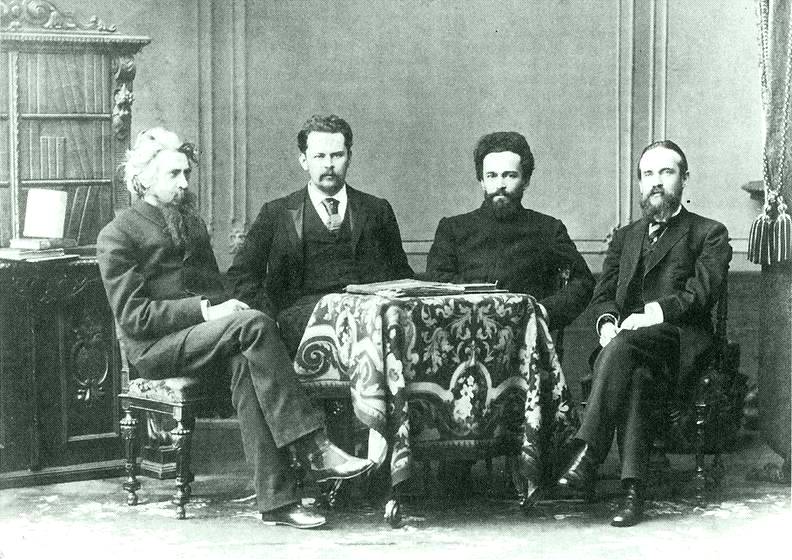|
Philosophers' Ship
The philosophers' ships or philosopher's steamers () were steamships that transported intellectuals expelled from Soviet Russia in 1922. The main load was handled by two German ships, the ''Oberbürgermeister Haken'' and the ''Preussen'', which transported more than 200 expelled Russian intellectuals and their families in September and November 1922 from Petrograd (modern-day Saint Petersburg) to the seaport of Stettin in Germany (modern-day Szczecin in Poland). Three detention lists included 228 people, 32 of them students. Later in 1922, other intellectuals were transported by train to Riga in Latvia or by ship from Odessa to Istanbul. Among the expelled * Vladimir Abrikosov * Yuly Aikhenvald *Nikolai Berdyaev *Alexander Bogolepov * Boris Brutskus *Sergei Bulgakov *Valentin Bulgakov *Semyon Frank * Ivan Ilyin * (university lecturer/publisher; father of architect Anatol Kagan) * Lev Karsavin (the brother of ballerina Tamara Karsavina; arrested again in 1940 and deported to a ... [...More Info...] [...Related Items...] OR: [Wikipedia] [Google] [Baidu] |
Boris Brutskus
Boris (Ber) Davydovich Brutskus (, , ; October 15/October 3 (Russian information), 1874 – December 6/December 7 (same with birthdate), 1938) was an economist from the Russian Empire. Brutskus was born in Polangen/Palanga in Lithuania, which was then part of the Russian Empire. His brother was the historian and politician Julius Brutzkus. Brutskus published an English translation for ''Economic Planning in Soviet Russia'' with an introduction by Friedrich Hayek in 1935. He was forced into exile by the Bolshevik government in 1922. He died in 1938 in Jerusalem Jerusalem is a city in the Southern Levant, on a plateau in the Judaean Mountains between the Mediterranean Sea, Mediterranean and the Dead Sea. It is one of the List of oldest continuously inhabited cities, oldest cities in the world, and .... Literary works * ''Экономия сельского хозяйства, народно-хозяйственные основа'', 1924 * ''Die Lehre des Marxismus i ... [...More Info...] [...Related Items...] OR: [Wikipedia] [Google] [Baidu] |
Boris Vysheslavtsev
Boris Petrovich Vysheslavtsev (; 1877– October 5, 1954) was a Russian philosopher who belonged to the Russian Silver Age and Renaissance of Religion and Philosophy.Blagova, Tatiana. “Boris Vysheslavtsev on the Russian National Character.” New Zealand Slavonic Journal, 1999, pp. 203–216. Life He did his doctorate on Fichte in 1914 and became a lecturer, later professor in the philosophy of law at Moscow University. In September 1922, he became one of a group of prominent writers, scholars and intellectuals who were sent into forced exile on the so-called "philosophers' ships". He emigrated first to Berlin, then in 1924 to Paris. He spent most of his life at the Orthodox Theological Institute. While in Paris, he published the book ''The Ethics of a Transfigured Eros'' (1931). This book deals with the Christianisation of Freudian sublimation and is universally considered Vysheslavtsev's best work. He is noted for an attempt to apply concepts of depth psychology to ethics ... [...More Info...] [...Related Items...] OR: [Wikipedia] [Google] [Baidu] |
Fyodor Stepun
Fyodor Avgustovich Stepun (; February 18, 1884 – February 23, 1965) (also known as Friedrich Steppuhn) was a Russian and German writer, philosopher, historian and sociologist. Biography Fyodor Avgustovich Stepun was born in Russia on 18 February 1884, in Moscow. After attending secondary school in Moscow he went as a student to Heidelberg, and there in 1910 he obtained his doctorate for a thesis on Vladimir Solovyov's philosophy of history. Between 1910 and 1914 Stepun edited the international philosophical journal, ''Logos'', and travelled across Russia lecturing on philosophy, literature and culture. During the first World War he was an officer in a Siberian regiment, and after the Russian revolution was an army commissar under the Russian Provisional Government. From 1920 to 1922 he directed the state experimental theatre; but in 1922 he was deported from the Soviet Union. He settled in Germany, working first in Berlin, and afterwards as a professor of sociology in Dresde ... [...More Info...] [...Related Items...] OR: [Wikipedia] [Google] [Baidu] |
Pitirim Sorokin
Pitirim Alexandrovich Sorokin (; ; – 10 February 1968) was a Russian American sociologist and political activist, who contributed to the social cycle theory. Sorokin was a professor at Saint Petersburg Imperial University, three times imprisoned by the Czarist regime for "revolutionary activity." His active opposition to the Bolsheviks led, after they were in power, to his arrest and sentence to death. Only with the help and intervention of friends, including Thomas Masaryk and Edouard Benes, was his sentence commuted to permanent exile, which led Sorokin to flee to Czechoslovakia. Moving to the United States, he became a professor of sociology at the University of Minnesota in 1924, and, in 1930, he was hired as head of the newly formed department of sociology at Harvard University. Background Pitirim Alexandrovich Sorokin was born on , in Turya, a small village in Yarensky Uyezd, Vologda Governorate, Russian Empire (now Knyazhpogostsky District, Komi Republic, Russ ... [...More Info...] [...Related Items...] OR: [Wikipedia] [Google] [Baidu] |
Mikhail Osorgin
Mikhail Andreyevich Osorgin (; real last name Ilyin (Ильи́н); 19 October 1878 – 27 November 1942) was a writer, journalist, and essayist born in the Russian Empire. Biography Osorgin was born in Perm, Russian Empire and became a lawyer after attending school in Moscow. He participated in the Revolution of 1905, was arrested and imprisoned, and eventually forced into exile in Italy. In Italy he became a foreign correspondent for ''The Russian News'', and a contributor to various papers abroad. He returned to Russia in 1916 and lived there until 1921 when he was again imprisoned for non-conformity and exiled to Kazan. He was deported to Germany in 1922 on one of the "Philosophers' ships". He lived in Berlin and Italy before settling in Paris. In Paris he contributed journalism, fiction, and book reviews to emigre papers. Among Osorgin's best known works are his novels '' Сивцев Вражек'' (1928; Sivtsev Vrazhek is a small lane in Moscow) translated as ''Quiet Stree ... [...More Info...] [...Related Items...] OR: [Wikipedia] [Google] [Baidu] |
Nikolai Lossky
Nikolay Onufriyevich Lossky (; – 24 January 1965), also known as N. O. Lossky, was a Russian philosopher, representative of Russian idealism, intuitionist epistemology, personalism, libertarianism, ethics and axiology (value theory). He gave his philosophical system the name ''intuitive-personalism''. He spent his working life in St. Petersburg and, after his exile by the Bolsheviks in 1922, in Prague and New York. He was the father of the influential Christian theologian Vladimir Lossky.Sciabarra, Chris Matthew.Investigation: the Search for Ayn Rand's Russian Roots" ''Liberty'' 1999-10. 10 August 2006. Life Lossky was born in Kreslavka then in the Russian Empire. His father, Onufry Lossky, had Belarusian roots (his grandfather was a Greek-Catholic Uniate priest) and was an Eastern Orthodox Christian; his mother Adelajda Przylenicka was Polish and Roman Catholic. He was expelled from school for propagating atheism. Lossky undertook postgraduate studies in Germany under Wilhel ... [...More Info...] [...Related Items...] OR: [Wikipedia] [Google] [Baidu] |
Gulag
The Gulag was a system of Labor camp, forced labor camps in the Soviet Union. The word ''Gulag'' originally referred only to the division of the Chronology of Soviet secret police agencies, Soviet secret police that was in charge of running the forced labor camps from the 1930s to the early 1950s during Joseph Stalin's rule, but in English literature the term is popularly used for the system of forced labor throughout the Soviet era. The abbreviation GULAG (ГУЛАГ) stands for "Гла́вное управле́ние исправи́тельно-трудовы́х лагере́й" (Main Directorate of Correctional Labour Camps), but the full official name of the agency #Etymology, changed several times. The Gulag is recognized as a major instrument of political repression in the Soviet Union. The camps housed both ordinary criminals and political prisoners, a large number of whom were convicted by simplified procedures, such as NKVD troikas or other instruments of extra ... [...More Info...] [...Related Items...] OR: [Wikipedia] [Google] [Baidu] |
Tamara Karsavina
Tamara Platonovna Karsavina (; 9 March 1885 – 26 May 1978) was a Russian prima ballerina, renowned for her beauty, who was a principal artist of the Imperial Russian Ballet and later of the Ballets Russes of Sergei Diaghilev. After settling in Britain at Hampstead in London, she began teaching ballet professionally and became recognised as one of the founders of modern British ballet. She assisted in the establishment of The Royal Ballet and was a founder member of the Royal Academy of Dance, which is now the world's largest dance-teaching organisation. Family and early life Tamara Karsavina was born in Saint Petersburg, the daughter of Platon Konstantinovich Karsavin and his wife, Anna Iosifovna (née Khomyakova). A principal dancer and mime with the Imperial Ballet, Platon also taught as an instructor at the Imperial Ballet School (Vaganova Ballet Academy). He counted among his students Michel Fokine, a future dancing partner and paramour of his daughter. Karsavina's ... [...More Info...] [...Related Items...] OR: [Wikipedia] [Google] [Baidu] |
Lev Karsavin
Lev (Leo) Platonovich Karsavin (; ; 13 December 1882 – 17 or 20 July 1952) was a Russian religious philosopher, historian-medievalist, and poet. Biography Early years Lev Platonovich Karsavin was born into the family of Platon Konstantinovich Karsavin, a ballet actor at the Mariinsky Theatre, and his wife Anna Iosifovna, née Khomyakova, the daughter of the cousin of Aleksey Khomyakov, a famous Slavophile. He was the brother of the ballerina Tamara Karsavina. He was a student of Ivan Grevs, graduated from the Faculty of History and Philology of Saint Petersburg State University. From 1909 he taught at the Petrograd Institute of History and Philology (professor since 1912, inspector since 1914) and at the Bestuzhev Courses. He was the Privatdozent of the Saint Petersburg Imperial University (from 1912), then professor (from 1916). His Master's thesis is a monograph entitled ''Essays on religious life in Italy in the 12th and 13th centuries'' (1912; defended 1913). Hi ... [...More Info...] [...Related Items...] OR: [Wikipedia] [Google] [Baidu] |
Anatol Kagan
Anatol Kagan, (4 October 1913, St. Petersburg, Russian Empire – 2 July 2009, Hunters Hill, Australia) was a Russian-born Australian architect. Over a professional career that spanned more than seven decades, and three continents, Kagan was active not only in the field of architecture and design but also as a writer, translator, lecturer and political activist. Early life and training Born in St Petersburg, Kagan was the son of Abraham S Kagan (rus. Абрам Каган; 1889 - 1983) - a university lecturer/publisher and a school teacher. As a young child, Anatol witnessed the atrocities of the Russian Revolution, which aroused a deep concern for social justice that would remain with him for the rest of his life. In 1922, Kagan's father became one of many intellectuals to be exiled from the new Soviet Union aboard the so-called Philosophers' Ships. The family settled in Berlin, where Kagan's father re-established his publishing business and Kagan himself commenced his ... [...More Info...] [...Related Items...] OR: [Wikipedia] [Google] [Baidu] |
Ivan Ilyin
Ivan Alexandrovich Ilyin (; – 21 December 1954) was a Russian jurist, religious and political philosopher, publicist, orator, and conservative monarchist. While he saw Russia's 1917 February Revolution as a "temporary disorder", the October Revolution, in his view, marked a "national catastrophe". This conviction led him to oppose the Bolshevik regime. He became a white émigré journalist, aligning himself with Slavophile beliefs and emerging as a key ideologue of the Russian All-Military Union. This organization firmly believed that force stood as the sole means through which the Soviet regime could be toppled. As an anti-communist, Ilyin found himself initially sympathetic to Adolf Hitler but his critique of totalitarianism was not embraced by the Nazi regime. In 1934, his refusal to comply with Nazi directives to spread propaganda led to his dismissal from the Russian Academic Institute, stripping him of employment opportunities. Financial support from Sergei Rachmanin ... [...More Info...] [...Related Items...] OR: [Wikipedia] [Google] [Baidu] |




